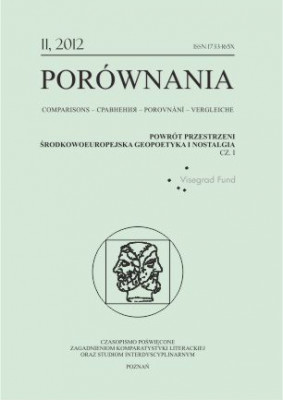The Melancholy of the Borderland Discourse
In seeking to answer the question why Poles are having difficulties in recognizing and critically describing their present postcolonial identity, the author refers to the notion of melancholia as an important interpretative category for illuminating the postcolonial condition of Poland in relation to its former Eastern territories, known as “Borderlands,” and accounting for the nation’s present problematic self-definition. The paper adopts the Freudian concept of melancholia to the study of discursive practices of the so-called Polish “Borderland” discourse. This discourse reinforces the view that Poles are in a condition of Freudian melancholia and subtly encourages the Poles to remain in such a condition. While traditional critical approaches to a great extent implicitly smuggle the attitude of yearning for the splendid past of the Polish-Lithuanian Republic and thus prevent Poles from coming to terms with their postcolonial condition as both “colonisers” and colonised, the prospective postcolonial studies in the “Borderland” discourse should not stop at the critique of this status quo. Instead, it should make the Polish postcolonial melancholia an object of scrutiny by placing this melancholia within the broader context of Russian and Soviet colonialism.
| Article Title | Type | Size |
|---|---|---|
| 10. Dariusz Skorczewski | [pdf] | [277 KB] |
